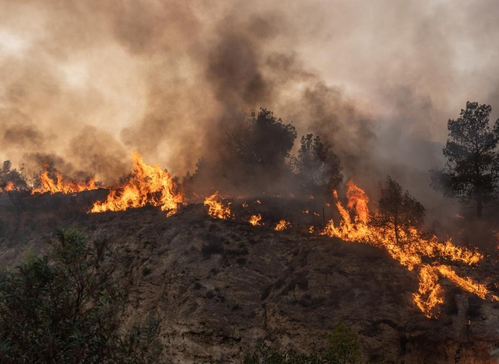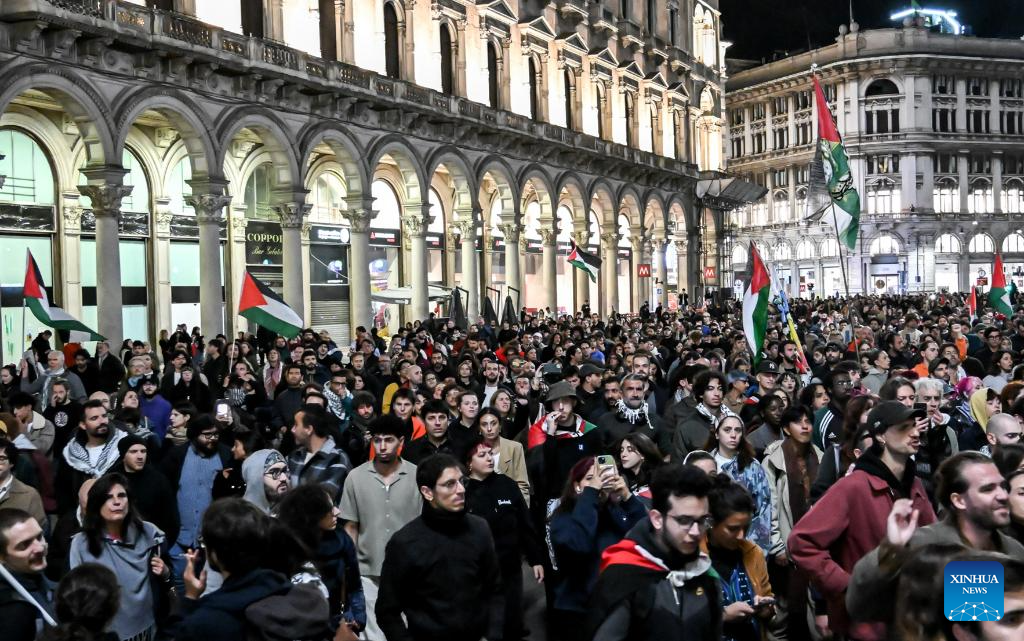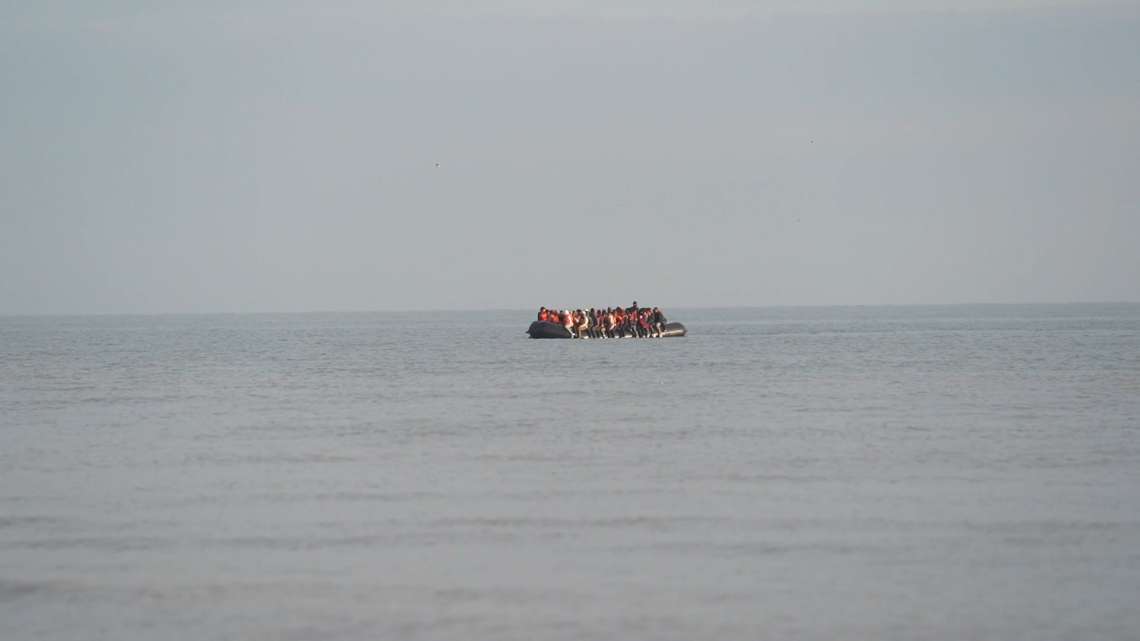With temperatures soaring above 38°C (100°F), and dry, windy conditions prevailing, fires are spreading fast.
A wildfire tore through a northern suburb of Athens on Saturday, forcing residents to evacuate as Greece faces multiple fire fronts and a sweltering heatwave.
The Fire Service reported that residents of Kryoneri, 20 km northeast of Athens, received three evacuation SMS alerts. Media footage showed homes engulfed in flames.
“There have been reports of damage. We will take stock when the fires have been put out,” said fire service spokesman Vassilis Vathrakoyannis, warning that “the real difficulties are ahead of us.”
Greece has requested six firefighting planes from the EU Civil Protection Mechanism. On the ground, 145 firefighters and 44 fire engines are battling the blaze, supported by 10 planes and seven helicopters. Four ambulances treated at least five residents, mostly elderly with respiratory issues.
With temperatures soaring above 38°C (100°F), and dry, windy conditions prevailing, fires are spreading fast. “Under such conditions wildfires expand very quickly and become dangerous,” Vathrakoyannis said.
The fire service is also fighting three other major blazes—on Crete, Evia and Kythera islands—requiring 335 firefighters, 19 planes and 13 helicopters. In total, 52 wildfires erupted across Greece in the last 24 hours.
Wildfires have become increasingly destructive in Greece in recent years. Several broke out just this past month. Prime Minister Kyriakos Mitsotakis has warned of a worsening water crisis due to climate change. Reservoir levels around Athens have plunged over 50% since 2022, placing Greece 19th globally for water scarcity risk.
“Water reserves in Attica have decreased dramatically, and dam levels are at historic lows,” he said during a cabinet meeting on long-term water management. Diminished water supplies are also affecting energy generation.
To address the crisis, more than 1,200 water management projects are underway—including desalination, recycling, coastal spring tapping, and merging debt-laden local water providers to improve efficiency. Nearly 50% of drinking water is lost due to leaks and theft—twice the EU average.
“This is a national priority. Urgent reforms are needed to ensure water security for the decades ahead,” Mitsotakis said.
In April, he extended the deadline for clearing overgrown vegetation on private properties by 45 days. The move was part of wider wildfire prevention efforts ahead of what officials anticipated would be another difficult fire season.
Greece battled devastating fires last year, including one that reached Athens suburbs. This year’s strategy includes stronger interagency coordination and investment in early warning systems.
On Saturday, five major wildfires burned across the country, including one just 30 km north of Athens. The smell of burning wood reached the capital’s centre, as Greece requested further EU assistance for aircraft.
“We have injured firefighters, human lives were put at risk, properties have been burned, and forest areas destroyed,” said Climate Crisis and Civil Protection Minister Giannis Kefalogiannis.
In Attica, a fire that began in Afidnes spread quickly through Drosopigi, Kryoneri, and Agios Stefanos. While the main front is contained, scattered hotspots persist. More than 200 firefighters remain deployed, supported by helicopters and water bombers.
On Evia, a blaze near Pissona spiraled out of control, reaching Afrati and leaving several villages without electricity. Six firefighters were hospitalized with burns and smoke inhalation.
In Kythera, residents described “total destruction” as a third wildfire engulfed much of the island. The coastguard and private boats rescued 139 people from Limnionas beach.
Elsewhere, wildfires rage in Messinia’s Trifylia region and Crete’s Chania district, where two homes have been destroyed.
Several regions—including Rhodes, Thessaly, Western Macedonia, and the Peloponnese—remain under high wildfire threat.
Last month, wildfires on Chios destroyed over 4,700 hectares. In early July, another blaze on Crete forced 5,000 tourists to evacuate.














